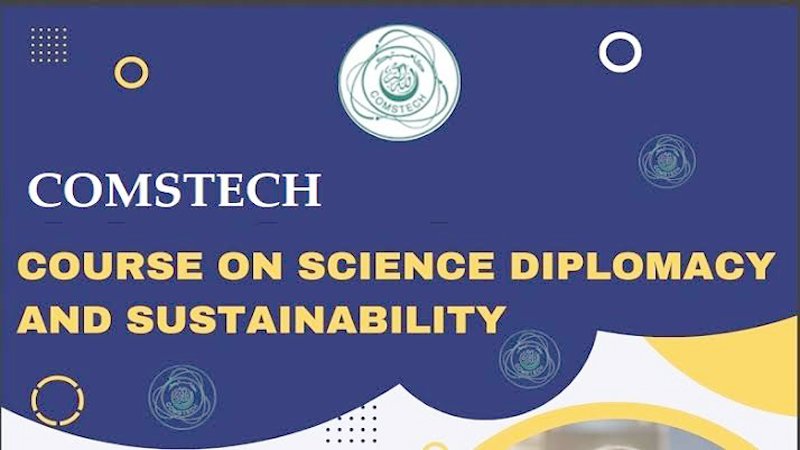A one-day introductory course on “science diplomacy and sustainability” was organised by COMSTECH on Monday at the COMSTECH auditorium.
A one-day introductory course on “science diplomacy and sustainability” was organised by COMSTECH on Monday at the COMSTECH auditorium. Prof. Zakri Abdul Hamid, the former science advisor to the Malaysian prime minister, and Mr. Kamran Akhtar, additional secretary of the ministry of foreign affairs, spoke at the course.
The Coordinator General of COMSTECH, Prof. Dr. M. Iqbal Choudhary, gave the welcome speech; the Adviser of COMSTECH, Dr. S. Khurshid Hasanain, gave the opening remarks.
In his two lectures, Dr. Zakri explained that the 57 member nations of the Organization of Islamic Cooperation as well as the Global South find it more difficult to pursue sustainability and the preservation of biodiversity and the earth’s resources in the face of climate change (OIC).
According to him, the environment and biodiversity in these nations, which still require rapid economic development, will suffer as a result of increased economic growth. He stated that the solution to this problem involves striking a careful scientific balance between encouraging development and enabling conservation.
On the basis of science diplomacy, he discussed the potential course of action for various stakeholders. Prof. Zakri emphasised the importance of a stronger role for science in international negotiations to address the issues of climate change and biodiversity loss.
Speaking about the fundamentals of science diplomacy in various fields of international negotiations, Mohammad Kamran Akhtar, Additional Secretary (ACDIS) from the Policy Planning and Public Diplomacy Division of the Ministry of Foreign Affairs, focused on its function as a soft power to advance diplomatic goals and foster goodwill.
He went on to discuss Pakistan’s involvement in international scientific projects like the physics LHC collaboration at CERN.
Regarding the regulation of greenhouse gas emissions, he emphasised that while it is a problem shared by all countries, there needs to be a scaled responsibility for emission reduction based on how much each country has contributed to the current state of the environment.
Speaking at the event, Prof. Dr. M. Iqbal Choudhary, the Coordinator General of COMSTECH, described the organization’s function in the area of science diplomacy.
As examples of science diplomacy, he cited the organization’s ongoing initiatives in the fields of health and medicine in sub-Saharan Africa, its collaboration with organisations concerned about food security, and its awarding of research grants to scientists in member states.
He emphasised that COMSTECH is leading the OIC effort to coordinate major science and technology initiatives for economic development among the 15 leading OIC member states (OIC-15 Dialog Platform).
He welcomed the diplomats from numerous OIC and non-OIC nations as well as the course participants, and he expressed the hope that it might result in greater cooperation in science and technology under the auspices of COMSTECH.
Numerous members of the Diplomatic Corps in Islamabad, representatives of the Ministry of Foreign Affairs, academics, and experts in the field of sustainable development were present.
